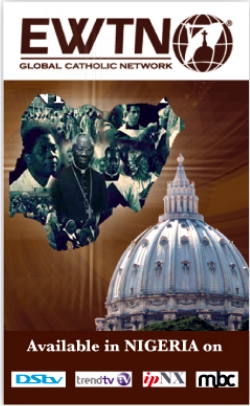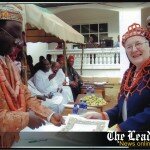Civil War: Ohanaeze Demands N2.4tn Reparation for Massacre of Ndigbo
Chief Mbazulike Amechi
The apex Igbo socio-cultural organisation, Ohanaeze Ndigbo, yesterday demanded the payment of N2.4 trillion as reparation and restitution from the federal government for the killings, violations, atrocities and injustices against Ndigbo in Nigeria since 1966.
Although the zone described as “incalculable,” the price on the death of millions of Ndigbo killed in the civil war and on other occasions, the amount is meant to cushion the sufferings the zone had passed through in the country, stressing that each of the five states of the South-east would receive a token of N400 billion from the money as compensation as well as Delta State for the benefit of Anioma area of the state.
Chairman, Ohanaeze Ndigbo Reparation Committee and First Republic Aviation Minister, Chief Mbazulike Amechi, who briefed journalists in Enugu, expressed dismay that about 15 years after Ohanaeze Ndigbo sent a petition to the Oputa Panel for the reparation and appropriate restitution for the crimes committed against the Igbos, government had refused to address the issues.
“Having waited for 15 years, Ohanaeze Ndigbo on May 25, 2013 set up a reparation and restitution committee to dust up the petition and revisit the issue.
The organisation has had cause to reflect on the long chain of injustices, atrocities and deprivation, which have been inflicted on Igbos over the years in respect of which there seems to be no end. These are taking place in a country which great Igbo sons and daughters spearheaded its founding. The spirits of millions of Igbo men, women and children who have been unjustly murdered over the years are crying for justice. It is incalculable to put a price on the death of millions of Ndigbo who were killed in the civil war and are still being killed by Boko Haram in the North east Nigeria,” he said.
“In January 1966, some officers in the Nigerians Army organised a coup d’etat and overthrew a government of nationalists and founding fathers of the federation. A carefully planned pogrom and genocide was unleashed on the Igbos mainly in the north. On May 29, 1966, they commenced what they called “ARABA” test riots and this lasted for seven agonising days where hundreds of Igbos were killed.
“On July 29, 1966, in what was termed ‘counter revolution and ethnic cleansing’, which began with the heartless killing of Major Gen. Aguiyi Ironsi and over 300 military officers and men of Igbo origin escalated into the massacre of unsuspecting Igbo civilians, men, women and children in many northern towns on a scale unprecedented in any part of the world even more gruesome than the killings of Jews. This forced hundreds of thousands of Igbos to flee back to the east abandoning all their properties in the north. As many of them were received at Enugu airport and railway station, most arrived with broken limbs, some with eyes plucked, some with cut off arms and one body without a head.
“At Benue River at Makurdi, soldiers stopped trains evacuating Igbos to the East and picked out Igbo men, women and children, shot them and threw their bodies into the river. Some of the children were thrown alive into the river. Official figures estimated that 50,000 Igbos were killed in this operation which lasted for many days.”
He stated that on September 30, 1968, the Nigerian soldiers murdered two delegates of the International Red Cross, two missionary workers and several other relief workers and more than 200 civilians at Okigwe, adding that on the same day, some Biafran leaders of thought were invited for a meeting at Textile Mill, Aba where a bomb dropped shortly before the commencement of the meeting killing several civilians.
Amechi said when the war ended in 1970 with the declaration of no victor, no vanquished , the atrocities continued on Ndigbo where all their property in Rivers State including houses, shops, factories were seized in the name of “abandoned properties’, adding that no compensations were paid to the landlords or those who lost other property.
“The federal government made a law and adopted a banking policy that all moneys owed by Igbos in the banks should be reduced to nil balance and Igbo adults who presented themselves should be given the ridiculous amount of 20 pounds (equivalent of N40)”, he said.
He lamented the brutal murder on December 26, 1994 of Gideon Akaluka in the presence of government officials in Bompai Prison of Kano by some Islamic fundamentalists, stressing that it was more devastating that they cut his head, hoisted it on a spike and paraded in the streets with law enforcement agents looking away.
Amaechi said that on June 8. 2005, six young Igbo traders were gunned down at Apo in Abuja, stressing that till today, government has refused to bring to trail, police officers who committed the act, adding that in the present killings in the north by the Boko Haram, several Igbos have been killed in churches, markets, motor parks and their homes, among others.
Read also Related Posts
Comments
comments


